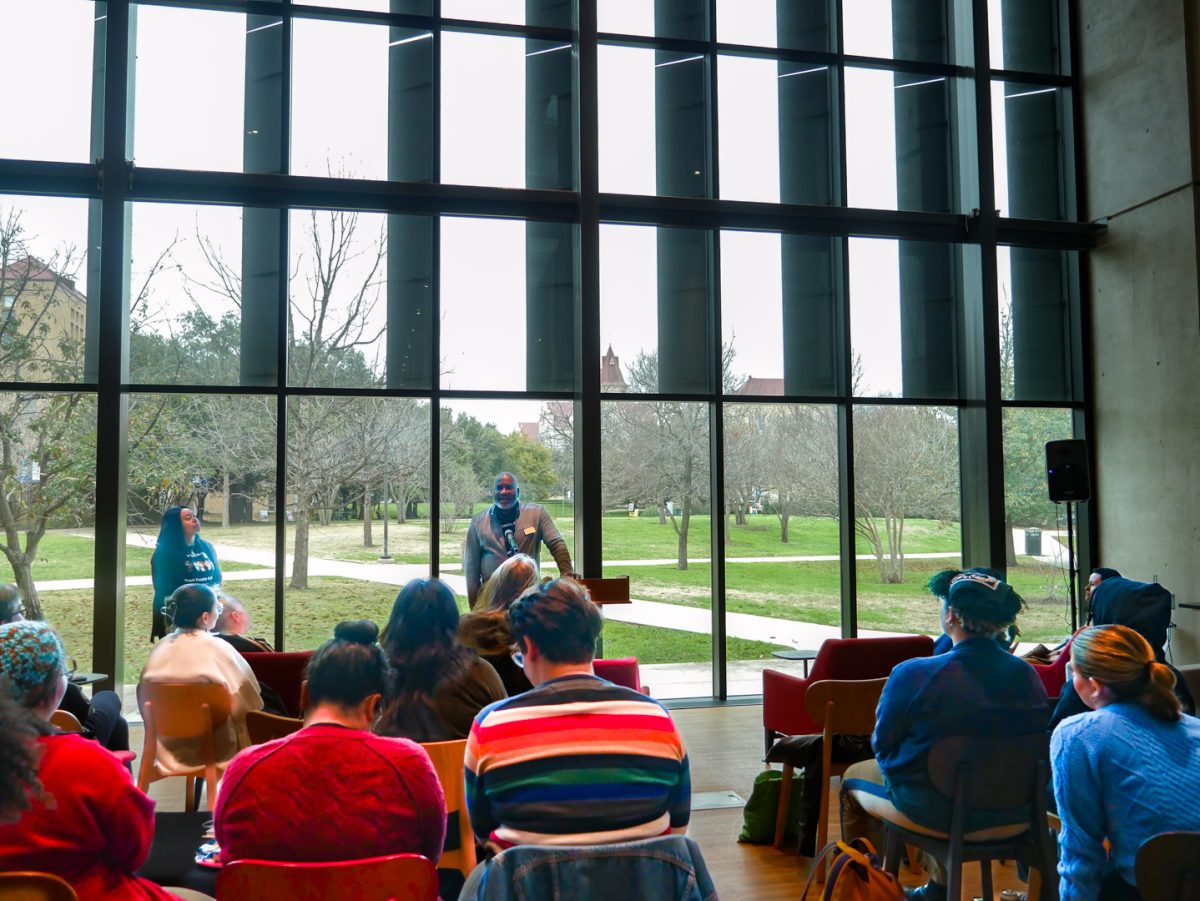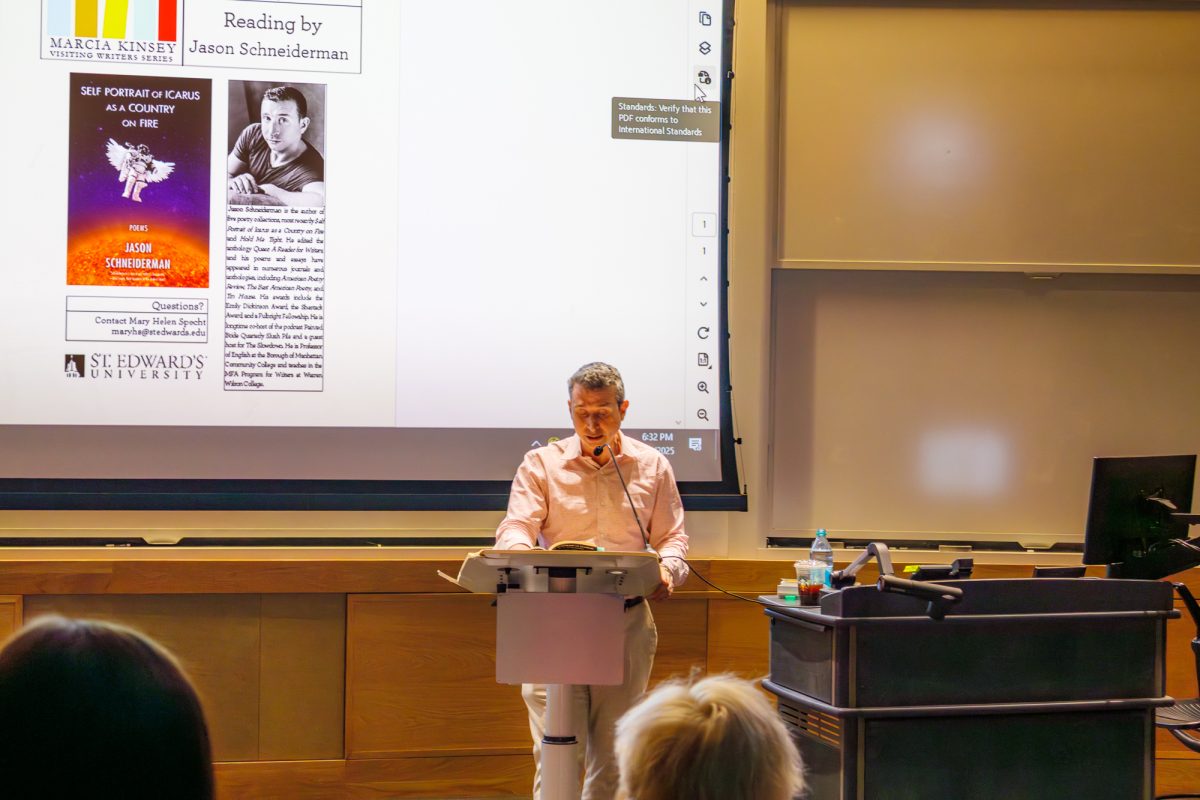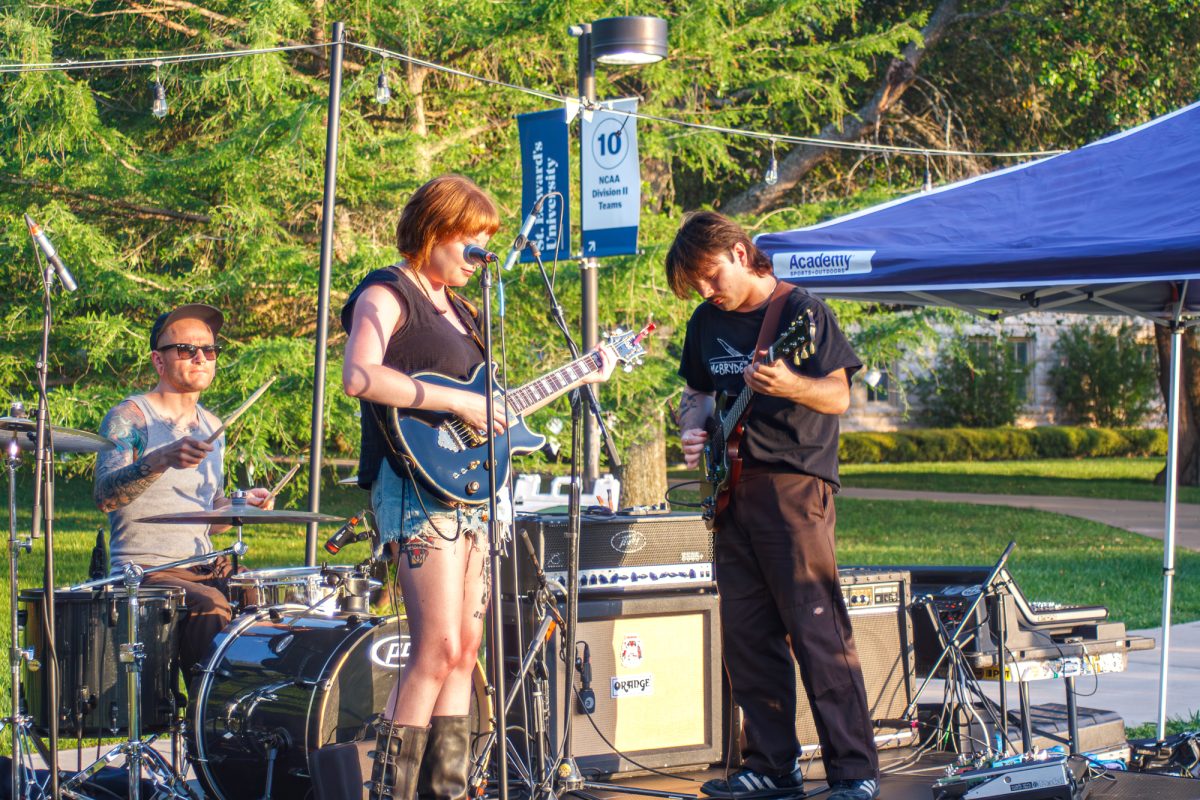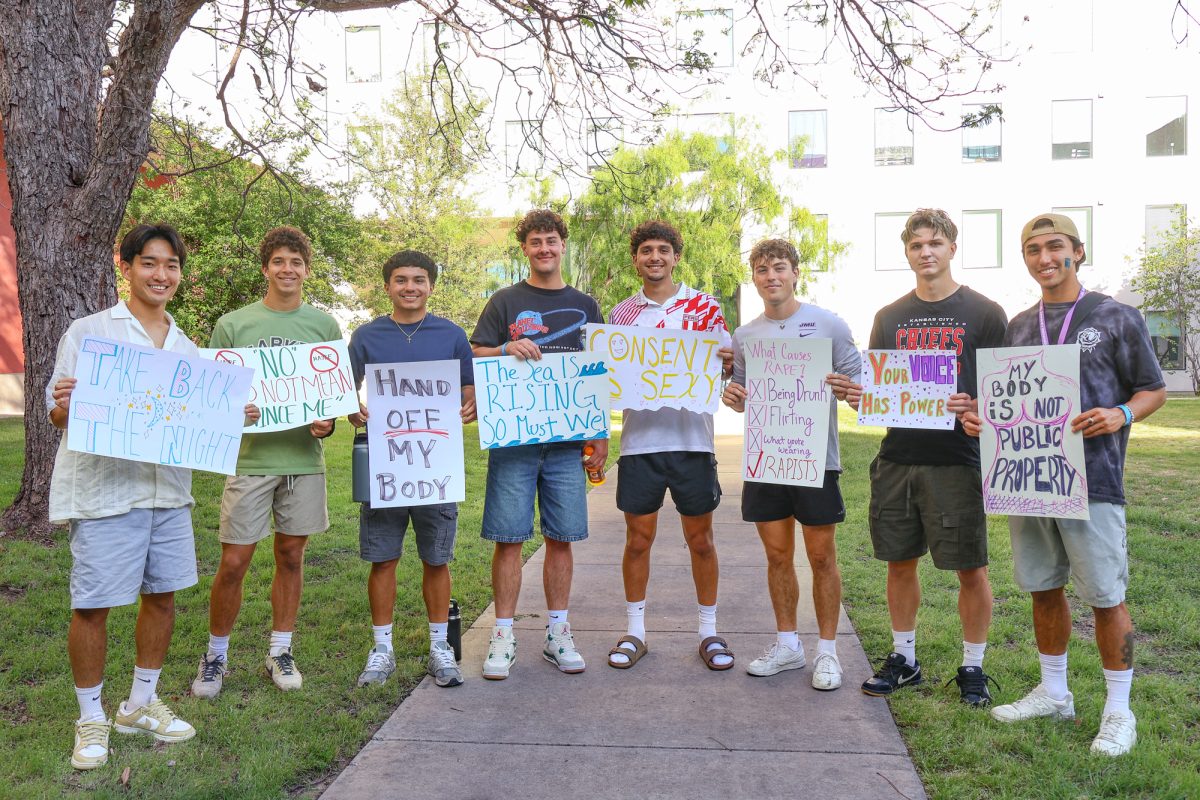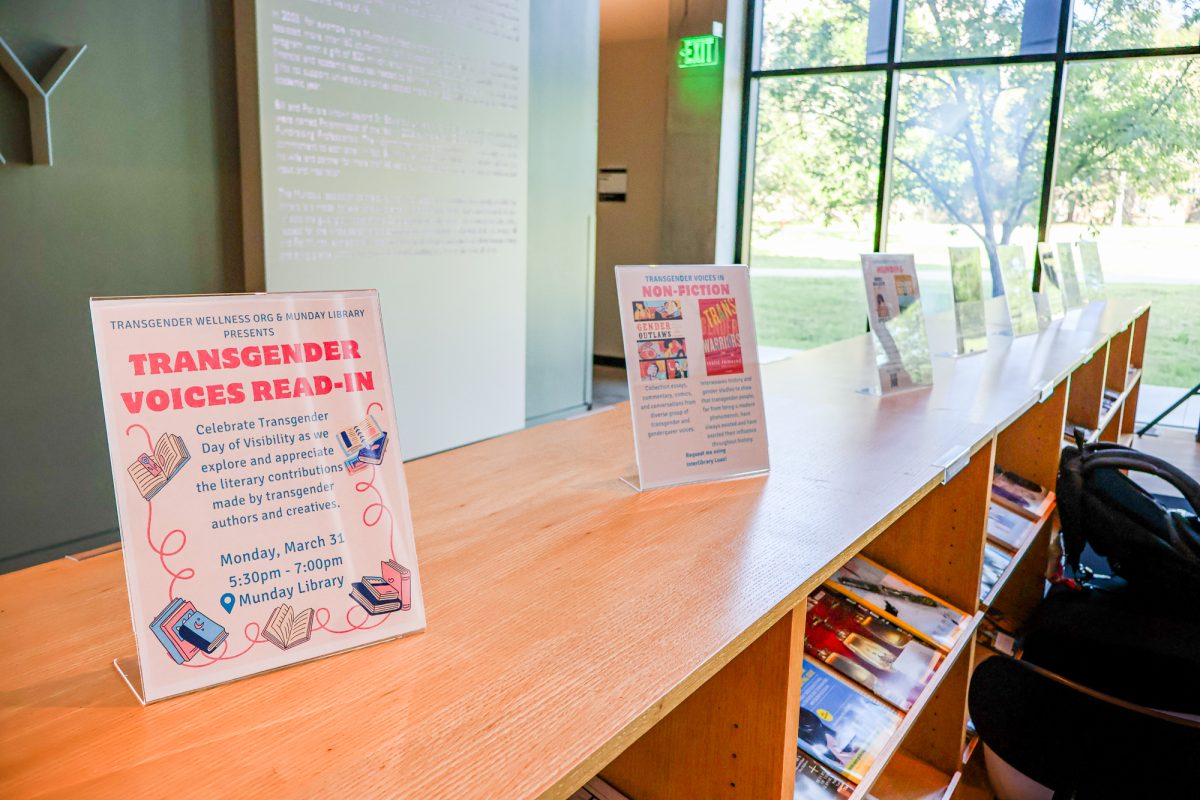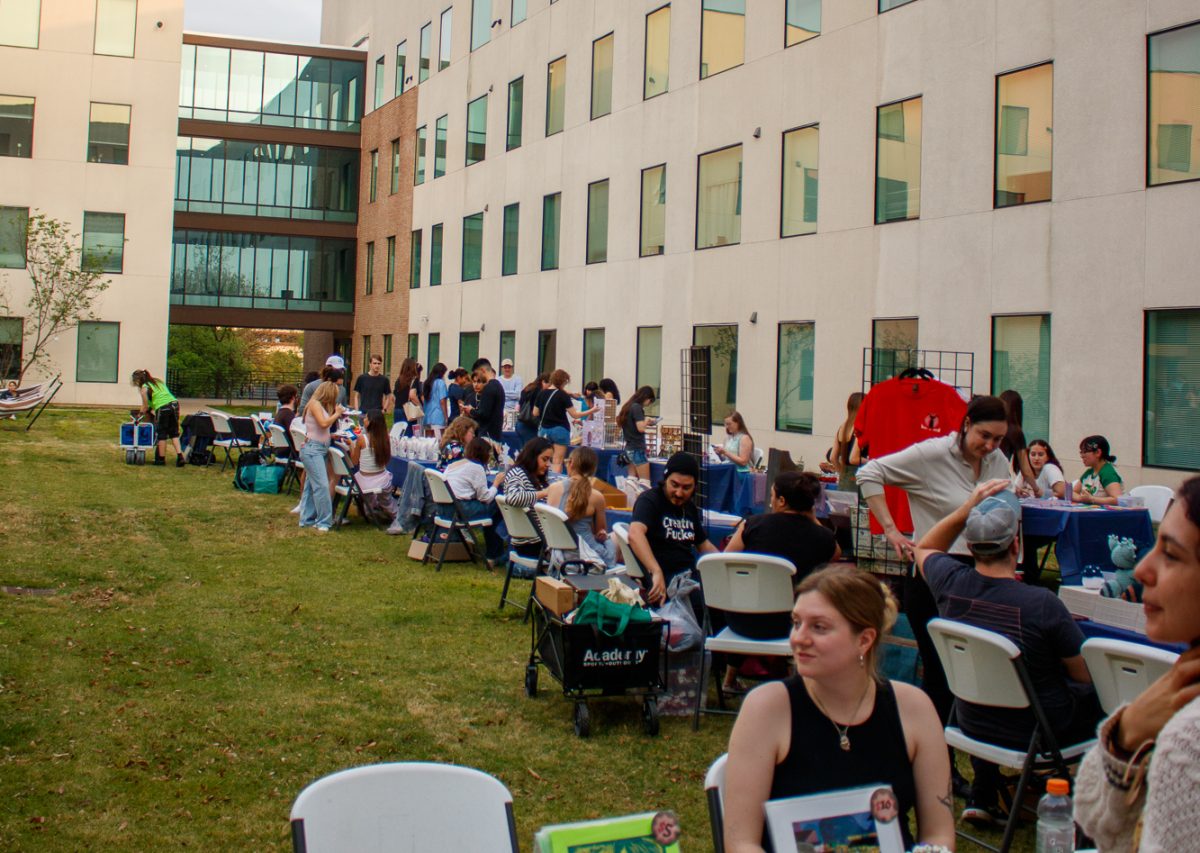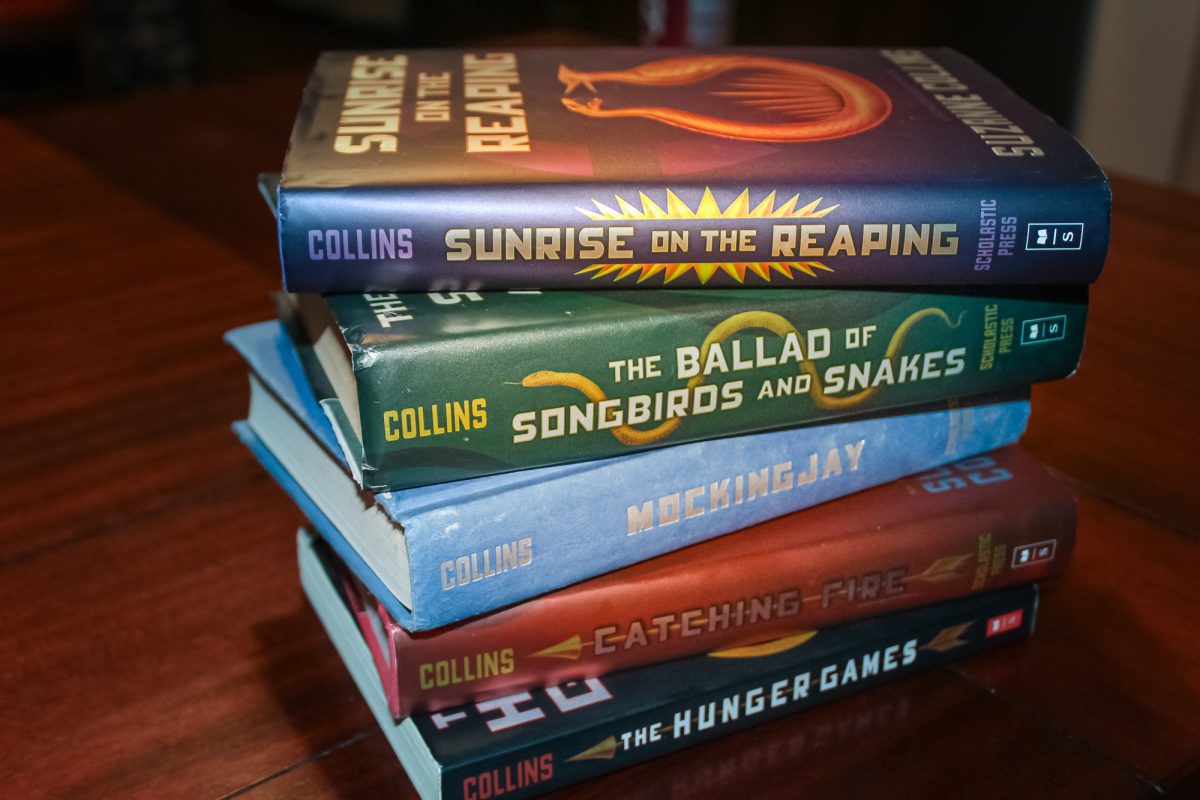In honor of Black History Month, the Munday Library along with the Coalition for Black Faculty and Staff hosted a read-in celebrating Black voices and authors. Students and faculty from all walks of life were welcome to come take in the words of Black authors read by members of the SEU community.
As attendees began trickling in to Munday Library’s first floor, they were greeted by coloring sheets of popular Black creatives like Maya Angelou and Angela Davis and a puzzle depicting scenes from the Harlem Renaissance.
This event amplified Black literary voices as well as Black businesses. Participants were encouraged to explore and appreciate diverse literary works and perspectives while enjoying delicious food catered by Black-owned business Christen’s Gourmet Pralines.
After a brief introduction about Black History Month, audience member Sully Snook and Associate Professor of Literature Alex Barron took the microphone. Snook read an excerpt from “Black Boy” which is a memoir by Richard Wright that describes the author’s upbringing in 1920s America. Barron followed Snook with the “Parable of the Sower” by Octavia Butler.
Barron’s reading felt oddly poignant, especially in the current political climate. She read, “Wednesday, Nov. 6, 2024. President William Turner Smith lost yesterday’s election. Christopher Charles Morpeth Donner is our new president, president-elect at least. So, what are we in for?”
“That book is a favorite of mine,” Barron said. “In that book, you have this young African American girl named Lauren, who basically brings together a community of people who are all fleeing this apocalyptic L.A. She brings them together and they form a community. I’m thinking a lot right now about what to do in the face of so many terrible political realities, climate realities, and community seems to be the answer. Anyone who can give us some knowledge and wisdom about community, I’m like, ‘I’m all there.’ I just want to learn from them. So, I want to keep learning from her.”
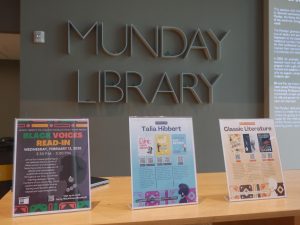
Following Barron’s reading, there was a short break where audience members were quizzed on their Black History knowledge. They retrieved snacks and discussed the parallels between the “Parable of the Sower” compared to now.
Afterward, Associate Vice President of Development Gregory Perrin read both “Lift Every Voice and Sing” by James Weldon Johnson and “On the Pulse of Morning” by Maya Angelou. “Lift Every Voice and Sing” is often referred to as the Black national anthem and was originally a hymn written as a poem.
“This is a Black History Month program and celebration, and that’s a traditional moment where we would play that music and honor it,” Perrin said. “But since I knew we weren’t going to do that, I thought we needed it in the space. We needed it at this program, and we don’t hear it spoken. Singing it sometimes – because if you’ve heard it and you’ve sang it in choir for years, we sing it by rope – but when you hear it, and of course for me, it was very powerful just to speak the words. You really get a little bit more meaning from it.”
Perrin continued on to read “On the Pulse of Morning” by Maya Angelou. This poem was recited at the inauguration of former President Bill Clinton. “On the Pulse of Morning” explores some of the same themes that “The Parable of the Sower” does: human connection to the Earth and to one another.
“(I loved) the moment in time that (Angelou) did that at the inauguration of President Clinton,” Perrin said. “But then the words. In the moment we read something as ceremonial and then that moment passes. But then to come back to it – as many of these readings and you just sit with it again – it has meaning. And a lot of that is evergreen. I mean, what she said is current today about inclusion of all of us, of us being just humans on this planet next to these trees and rivers and rocks that have been here for millennia and the way we’re acting toward each other. But there’s always the future, right? It has some hope in it.”
Several students and faculty took the mic after Perrin, reading selections from Audre Lorde, Angie Thomas and Bell Hooks. The event concluded with the poem “Joy” by Langston Hughes, a central figure in the Harlem Renaissance, which promoted the bloom of distinctly Black art and literature.


